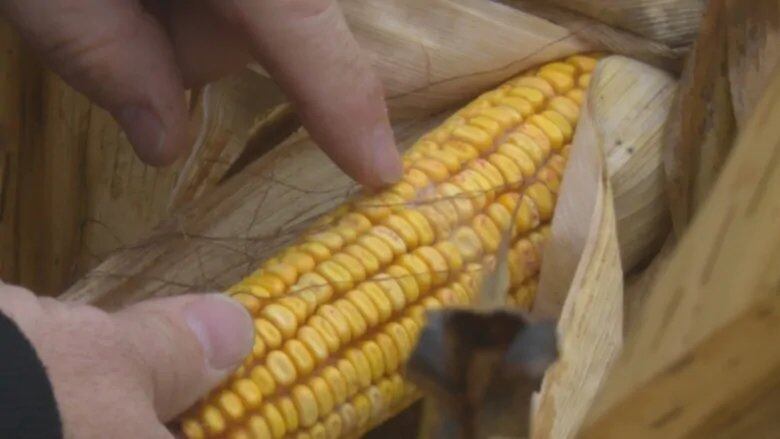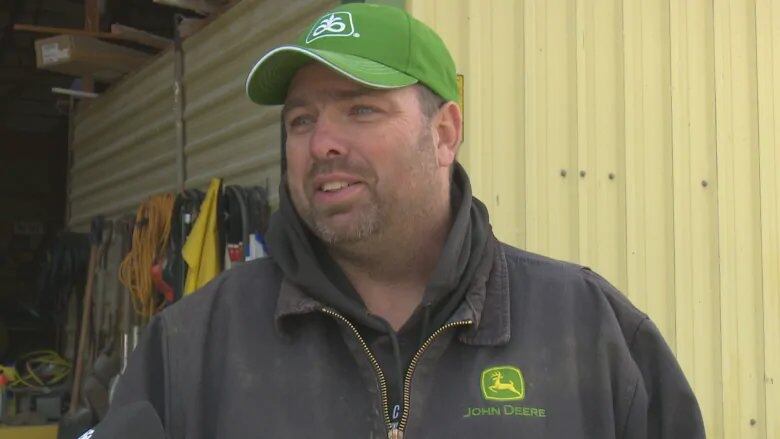Grain industry 'grateful' government is stepping in

There's help on the way for Ontario grain farmers.
The provincial government announced a special assistance support plan today for farmers with financial hardship due to the high levels of deoxynivalenol (DON) in this year's corn crops.
Essex County farmer Ray Simard is grateful the Ontario government is "doing something."
"It's challenging," said Simard, speaking to CBC Windsor from his fields. "I don't know how soon they're going to implement this, or what paperwork they want, but it needs to be expedited."
Simard said it's hit or miss during harvest, with some DON levels resulting in a $2 a bushel loss a 50 per cent cut to the normal $4 a bushel price.

The assistance will come from both provincial and federal governments through the Canadian Agricultural Partnership. Together, governments are:
- Opening an application process aimed at covering a portion of eligible farmers' expenses from testing for DON levels.
- Supporting new projects to help address challenges at different points in the grain sector value chain, such as finding ways to best process or market corn impacted by DON.
- Partnering with the Grain Farmers of Ontario on research and new actions to reduce the frequency and impact of high DON levels, including finding temporary options to store corn to improve grain quality.
Ontario's Minister of Agriculture, Food and Rural Affairs Ernie Hardeman said the government is taking action.
"We want Ontario farmers and others working in our agricultural sector to succeed," said Hardeman in a release. "That means working to find solutions that will help them get ahead, despite the challenges nature may cause them."
In Essex County, the industry has been hit harder than expected.
"Essex has had higher rates than DON than we had initially thought. We are seeing some fields testing in the 10 and 20 and 30 parts per million," said Don Kabbes, manager at Great Lakes Grains Inc. "As a grain elevator, we are not accepting those."
According to Kabbes, province-wide the crops are between 60 and 80 per cent harvested. Locally, only about 50 per cent is harvested.

Kabbes said it's 'great' that there's activity by government to help the grower, but it's not just about the farmers.
"It's good the government is seeing the need for helping out somehow. The entire supply chain is impacted. The grain handlers, the industrial users, the truckers. Everybody along the chain is impacted by this."
Kabbes and Simard say there was nothing the government could have done before now.
"We thought Essex wouldn't be all that bad," said Kabbes. "Now it's going to be as bad as any other area. Predicting this beforehand is so, so difficult."












_(720p).jpg)


 OFFICIAL HD MUSIC VIDEO.jpg)
.jpg)



























































































